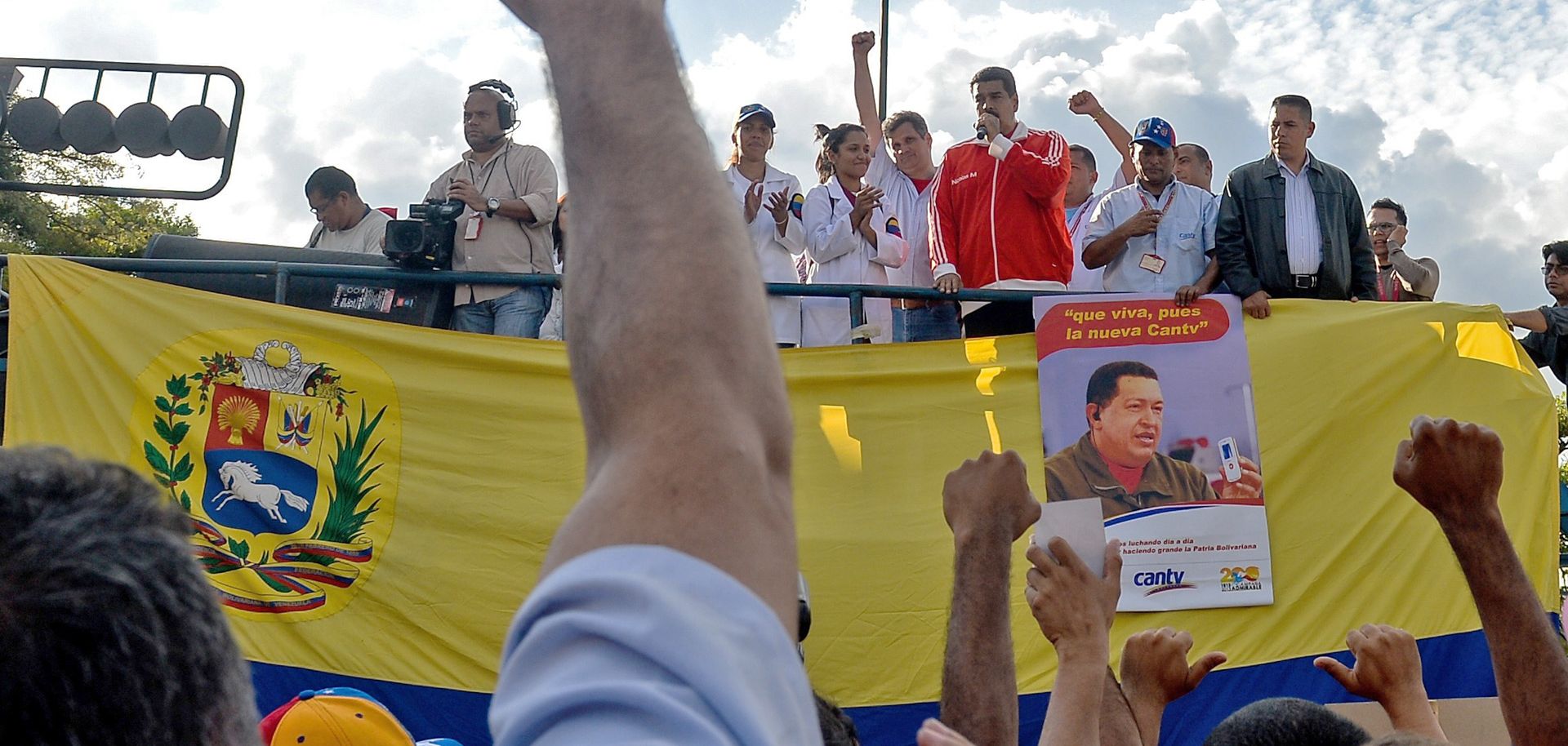ASSESSMENTS
Venezuela's Expensive Friendships
Jan 2, 2016 | 14:03 GMT

(FEDERICO PARRA/AFP/Getty Images)
Summary
Venezuela is in the early stages of a political transition. With the loss of the National Assembly to the opposition coalition, President Nicolas Maduro is running out of options for retaining firm control over the country. Meanwhile, Venezuela's financial situation is becoming ever more dire. The newly empowered Democratic Unity Roundtable coalition (MUD) may re-evaluate some foreign policy decisions that have become economically burdensome, including the country's discounted energy shipments to Cuba and its oil-for-loans deal with China. Of course, these agreements exist as a product of close diplomatic relationships with the relevant countries, and political imperatives may be strong enough to keep them in place for the short term. But the threat of financial default will loom large for Venezuela in 2016; if Caracas finds itself in a debt restructuring process, its bargains with Cuba and China may no longer be worth the cost.
Subscribe Now
SubscribeAlready have an account?
